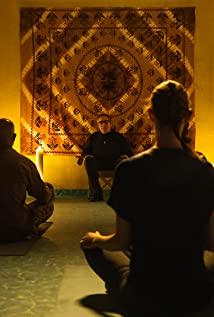The Berlin Film Festival was born in West Berlin during the Cold War. It was established with the support of the American occupation authorities. It somewhat meant to show the cultural prosperity of the Federal Republic of Germany, and the selection of films after that also had a strong political awareness. In addition to art, the festival is very active in socio-political issues, such as the establishment of the LGBT film Teddy Bear Award in 1987, a full twenty years before the queer lion in Venice, and the queer palm in Cannes even later.
The Golden Bears of the past two years have been awarded to highly political works: 2015's "Taxi" (تاکسی, also translated as "Tehran Rent") is a fake documentary that satirizes the Iranian government, especially its cultural censorship. Director Jafar Panahi (Jafar Panahi), who was convicted of speech, was banned from leaving the country when the film was sent to Berlin, and his little niece who appeared in the film took the golden bear on his behalf; Fuocoammare) is an Italian documentary about refugees, which is full of political significance in Berlin at the height of the European refugee crisis.
But no art film festival is purely a response to current affairs, also the Golden Bear films from Iran and Italy, جدایی نادر از سیمین in 2011 and Cesare deve in 2012. morire) is more art to win. If there is any "politics" in them, it is also politics in a broad sense, and it is a discussion of more meaningful propositions in human nature and society - Aristotle said, "politics" is the commonality of people and people in a city-state art of living. Where there is a human community there is "politics".
There are still plenty of films on political and social issues at this year's Berlin Film Festival. The other side of hope (Toivon tuolla puolen), which won Finnish maestro Aki Kaurismäki for best director at the Silver Bear, was a stylized, dramatic treatment of refugee topics, and the jury prize went to France and Senegal co-produced the "black film" "Félicité" (Félicité), the best screenplay was awarded to the transgender film "Una mujer fantástica" (Una mujer fantástica). Alfred Bauer Award-winning film Pokot is so blatantly feminist and animal protection that director Agnieszka Holland made no secret of it at a press conference For her political intentions, she said that she chose these two angles because the evil of politics will definitely attack the concept of progress in society (feminism) and the harmony of nature (animals), clearly referring to the Trump administration in the United States.
However, after a period of excitement and excitement, the international jury of the main competition, headed by the famous Dutch director Verhoeven, awarded the highest award to a quiet, restrained and shocking masterpiece - the Hungarian film "Flesh and Spirit" (Testről és lélekről).
The film does not have a grand narrative. The story revolves around middle-aged slaughter factory owner Andre (Géza Morcsányi) and new quality inspector Maria (Alexandra Borbély). Maria, who has an excellent memory, has serious psychological barriers and obsessive-compulsive disorder in dealing with people and social interactions, so that she cannot integrate into any group at all and lives a lonely life (her symptoms are actually very consistent with the situation of some autistic people , but we do not make a psychopathological analysis in the specialized sense). Although Andrei is a successful businessman and manager, he also lives alone due to age, physical and family reasons, and his loneliness seems to be stronger than Maria's. The way the director uses to show the two characters exhausts all the potential of the film as a "whole art" . Not only does the noise of other characters contrast the "stillness" of the two, but also uses composition to create a sense of isolation and claustrophobia, and uses light and shadow to create a sense of isolation and claustrophobia. and light and shade to emphasize the inner shadow and sense of isolation of the characters.
As an audio-visual art, movies cannot directly express the psychology of characters in words like literary works (the narration is a poor TV drama technique), it must externalize the inner world, such as the most used bridge in the world: the hero is sad, It started to rain. But "Flesh and Spirit" has done this kind of "externalization" extremely brilliantly. For example, when shooting Maria's apartment, the setting and scheduling adopted cool colors and minimalist collocation, and the bright lights and white furnishings were reminiscent of a hospital. Creates a strong morbid environment and a sense of isolation. The shaping of characters is not solely the responsibility of the actors. All the elements of audio-visual light and shadow are mobilized. The overall atmosphere and style intimidate the audience's senses and directly control our thinking and emotions.
The contradictions that drive the plot are somewhat surreal. After the aphrodisiac used to raise livestock in the factory was stolen, the police suggested psychological evaluation of all employees. Andrei and Maria also discovered that they would have the same dream as each other, and interacted with each other in their dreams. They turned into two deer, one male and one female, drinking water and swimming in the ice and snow. The two people, who already had a good impression of each other, began to try to communicate with difficulty, and the philosophical depth of the film was also brought to a higher level: the two dichotomies of dream and reality, the material (house furnishings, etc.) and the heart that were laid out before, overlapped in the film. together . The film's method of externalizing the hearts of characters with real images has dissolved the binary opposition of the latter pair, and the former pair will also merge into one as the plot progresses.
But bridging the boundaries between dreaming and waking isn't easy, and Maria's barriers to communication include physical contact, not to mention sex. Her inner love and physical resistance form a pair of contradictions, pointing out another theme in the film - the difficulty of communication between people. Maria's resistance is a psychological barrier, but Andrei interprets it as a young woman's indecision, thinking that Maria has reservations about his feelings or dislikes his aging and mutilated body. All the language and behavior of people when they get along are a kind of symbol and a kind of information. We send out information according to our understanding of the rules of social interaction, and also interpret the received information according to this set of rules, so misunderstandings occur from time to time. The most typical situation is that a mentally mature and experienced person like Andre interprets all the information around him according to the most common rules in society. This interpretation is normal, but it is vulgar and makes us miss many things in life. beautiful things.
A considerable part of the film is about how Maria overcomes her own psychological barriers to "learn" to love. She observes lovers on the grass in the park, listens to love songs, touches stuffed animals and even slaughterhouse animals to practice physical contact. Critics who don't like the film often see the process as "therapeutic apathy," but "Flesh and Spirit" is not about correcting any psychological state, but about breaking out of the cocoon and re-embracing "others" because human nature Defined in the crowd, shaped in communication. Maria's efforts were like learning a language, a set of rules that her loved one could accept so that the message could reach his heart. Symbols are often unrecognizable after being translated and interpreted again and again. Every communication between human beings is an adventure, and we are all practicing like Maria, in order to get rid of the dilemma of incomprehensible words. This kind of effort is arduous, many people give up halfway and choose to continue misunderstanding, so there is conflict, hatred, war; and only love can provide us with enough motivation to continue navigating the ocean of symbols and meanings, trying to reach another individual's heart. It is easy to choose misunderstanding and hatred, but difficult to choose love and understanding. In order for love to be rewarded, we need time and practice.
Under the almost perfect composition and scheduling of Eastern European filmmakers, "Flesh and Spirit" reconciles the tit-for-tat binary contradictions and makes them blend into one. Matter and soul, image and heart, intention and interpretation, are all pinched together, and the boundary between dream and reality becomes blurred. However, in order to achieve such a flexible, ambiguous, and tolerant combination, the director chose two people who were already incomplete, because it is easy for people who seem to be able-bodied to follow the "normal" social rules and put this series of binary cognitions together. to cover up the evils of the individual, thereby maintaining a safe and false distance between individuals. She needs to find an extreme situation to show the incompleteness and loneliness of being a human being, and love and cultivation are the only solutions.
The song that sparks Maria's love and desire in the film is British singer Laura Marling's 2010 single "What He Wrote", with lyrics inspired by a wartime singer. Letter from woman to frontline husband. Two of them are repeated in the film:
He wrote, I'm broke, please send for me. But I'm broken too, and spoken for, do not tempt me.
He wrote, I have nothing, come to me. But I am also broken, unable to speak for myself, stop tempting me.
We write, that's alright, I miss his smell. We speak when spoken to, and that suits us well.
We correspond, it's good, I miss his taste. We speak only in response to others, and that's good for us all.
Everyone is broken and longs to find salvation in others and loved ones, but the other person who is only mortal is also too busy to take care of himself. The ultimate loneliness of human beings makes us miss our lover, but when information is not smooth, symbols are lost, and communication cannot be carried out, what allows us to firmly grasp each other is the physical reality of smell, which is like an anchor to the unreachable lover. tethered to us. When soul and body are simultaneously engulfed in the ultimate human misery, they help each other to get through it, and they merge as one to carry the burden of existence.
Similarly, dissolving the binary opposition between matter and meaning is also a way of resisting the alienation of matter from human beings. Throughout human history, we have witnessed the battle between our creations and our values. People give objects value and meaning, and objects can in turn discipline our values and understanding of meaning. In the first half of the film, the factory machines, animal corpses, and furnishings in the room are superimposed and pushed the modern capitalist civilization to the extreme of fetishism, and all these cold objects are finally destroyed by two happy bodies. In the animalistic sensuality, we rediscover human-centered values, and pleasure becomes a metaphor for the meaning of human nature.
After being completely conquered by this masterpiece at the Berlin Film Palace, I didn't tell my colleagues how much I liked "Flesh and Spirit", because as a film critic, we always think about the details of the form, the script and the narrative. Questions like polishing and the significance of film history. When such a highly completed and seemingly "light" work appears in front of us, it seems a shame to be moved by it. And this is precisely the kind of human suffering that the film wants to talk about. When we have mastered a set of "rules" for evaluating films, we lose our ability to perceive, and fetishically search within the boundaries of our own dungeons. "significance". Although artistic creation has many skills and rules, as an anthropological existence, it also requires a more instinctive perception. And "Flesh and Spirit" moved us because it not only successfully and stylized a specific story, but also discussed the most fundamental pain and imperfection of human beings in a broader sense.
As a "women's film," it opens up our scars while lovingly kissing our bloody flesh. Of course, "women's cinema" is an essentialist claim that may simply be nonsense. But art as pure and pure as "Flesh and Spirit" is not as "apolitical" as it seems. The discussion of the ultimate loneliness of human beings and the failure of communication is the most in-depth analysis of people's life together, and it is politics in the philosophical sense.
So perhaps it 's no accident that the film, with a female director and main producer, has reached the top in Germany . Berlin was the first of the three major European film festivals to award the top prize to a female director, and it happened to be a Hungarian film – Márta Mészáros’ Adoption (Örökbefogadás, 1975) , followed by "Rise" (Восхождение, 1977) by former Soviet director Larisa Shepitko, and "Gbavica" by Bosnian director Jasmila Žbanić (Grbavica, 2006), The Milk of Sadness (La teta asustada, 2009) by Peruvian director Claudia Llosa. Venice caught up in the 1980s, awarding two Golden Lions in five years to feminist films directed by women: Margarethe von Trotta's "The German Sisters" (Die bleierne Zeit, 1981) And Agnès Varda's "The End of the World" (Sans toit ni loi, 1985), and since then two more female directors have won the honor. The Cannes Palme d'Or, the highest honor in European films, has so far only been given to New Zealand director Jane Campion (The Piano, 1993).
In the sense of identity politics, even the Berlin Film Festival, the most friendly to female creators, has only awarded them the top prize five times in its 67-year history, so gender equality in the film industry has yet to be improved. Given the poor overall quality of Berlin's selection of films this year, the International Film Critics Fabisi Award and the Catholic Jury Award were also given to "Flesh and Spirit", the work with the highest degree of completion in the main competition. But more importantly, Verhoeven and his six judges used this golden bear in 2017 to show us that a seemingly pure and simple love story can also be philosophically profound and politically brave. Of course, the most important thing is to improve in art.
(The abridged version of this article was published in Sanlian Life Weekly on February 27, 2017. Reprinting and citing are strictly prohibited without authorization.)
The Golden Bear Award-winning films mentioned in the article in recent years (in order of premiere year):
This year's Silver Bear Award-winning films mentioned in the article (in order of award level):
Laura Marlene's single "Letters to Me" from the album:
Five female directorial works by Vuberlin Golden Bear (sorted by year of premiere):
Four female directors' works that captured the Golden Lion of Venice (in order of premiere year):
The only female director's work to pick the Palme d'Or in Cannes:
View more about On Body and Soul reviews











